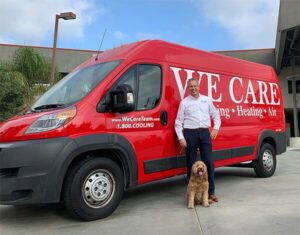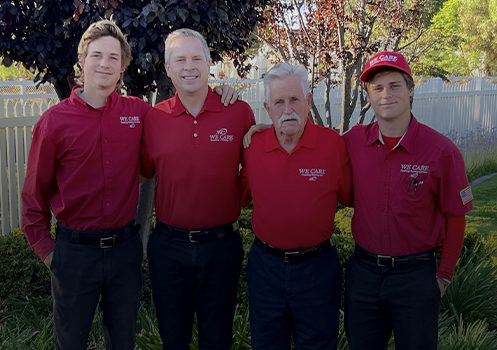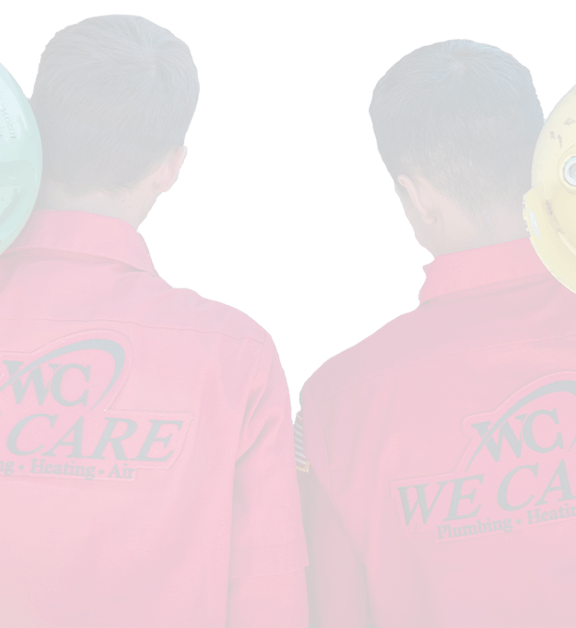Your home’s HVAC system is one of the most significant factors in determining the home’s comfort level. Its parts must run smoothly. HVAC maintenance, repair, and replacement are best left to professionals in Orange, California. There are several levels of certification that HVAC technicians receive that verify they have the proper training to get the job done correctly.
Contact An HVAC Technician Today!
What Is HVAC Certification?
HVAC systems are not just in residential buildings; they are found in warehouses, offices, shopping centers, and just about every other building. They are responsible for heating, cooling, and ventilating areas where people work, live, and congregate. If an HVAC system is not properly maintained, cleaned, and calibrated, it could negatively affect the health and well-being of a building’s occupants.
When a technician obtains an HVAC certification, they are proving that they have the proper training, have passed the necessary steps, and work in a way that’s in harmony with industry standards for their job. Understanding the different types of HVAC certification when hiring professionals to work for you is essential.
What Is Indoor Air Quality Certification?
Maintaining healthy indoor air quality is a top priority for homeowners and HVAC technicians. A growing body of scientific evidence proves that the air inside the building can be more polluted than outdoor air. The HVAC system is the primary means by which the air inside buildings is cleaned.
Issues with the HVAC system are the number one factor in causing problems associated with poor indoor air quality. When a building is properly constructed, the HVAC system can help maintain the cleanness of the indoor air.
For this reason, it is often the responsibility of the HVAC tech to implement indoor air quality improvements in a building. For this reason, an HVAC technician needs to be trained in indoor air quality matters.
With an IAQ (indoor air quality) certification, technicians can offer indoor air quality services when they visit their customers. The training and subsequent testing give a technician experience and know-how on inspecting, maintaining, and adjusting a home’s or building’s humidifiers, ductwork, blowers, and other apparatuses that affect indoor air quality. Air conditioners are prone to air quality issues; that’s why it is vital to hire a technician with proper certification. They can help a homeowner keep their system running at peak capacity.
What Is NATE Certification?
NATE (North American Technical Excellence) certification is recognized and respected nationwide as proof of an HVAC technician’s qualifications. This certification is not required by law, but most reputable HVAC companies require their technicians to have it.
The NATE certification proves a technician understands gas furnaces, air conditioning, and heating. Certification can be earned in one or all of these areas of expertise. When you hire a NATE-certified technician, you know that you are dealing with a professional who can diagnose and repair all types of HVAC equipment.
NATE certification sets professionalism and quality standards, making it easier for customers to decide when choosing HVAC technicians to maintain, install, or repair the heating and cooling equipment in their home or office. Technicians can earn both service and installation certifications. The exam tests their knowledge of basic electrical, construction, and scientific knowledge. To pass, they must prove they understand safety equipment and HVAC-related tools. They must show that they can measure humidity and temperature and understand what is required to achieve comfortable conditions in the home.
What Is R-410A Certification?
Refrigerants like R- 410A operate at a higher pressure than other refrigerants. Because of this, safety training for handling R-410A is important. R-410A systems require HVAC technicians to use specialized tools and equipment to repair, install, or retrofit the systems.
The EPA (Environmental Protection Agency) does not require a separate certification for handling R-410A. However, because of the safety concerns involved, many equipment manufacturers require service professionals who purchase an R-410A system to be certified and to show proof that they have attended training seminars.
What Are Some EPA Certifications for HVAC Technicians?
The EPA requires HVAC technicians who work with certain refrigerants to have the proper certifications. If a technician can pass these exams, they understand how to safely handle these hazardous materials.
Type I EPA certification shows that a technician is qualified to work on small appliances that use less than five pounds of refrigerant. Examples of these include freezers and residential refrigerators.
Type II EPA certification verifies that a technician has the skills to dispose of or service high-pressure appliances. These include commercial-size refrigerators, freezers, and outdoor air conditioning units.
Type III EPA certification allows a technician to dispose of or service low-pressure appliances that use a refrigerant with a boiling point in excess of 50 degrees Fahrenheit.
A Universal EPA certification qualifies a technician to work on refrigerants and all types of equipment. Passing these exams proves that a technician can handle hazardous material safely.
What Is Preventative Maintenance Certification?
When you hire an HVAC technician with this certification, you know you are working with someone trained in troubleshooting potential problems during routine maintenance. This means that when the technician evaluates your system, they have a higher chance of spotting minor issues that could become major problems.
The Benefits of Working With a Certified HVAC Technician
If you work with someone who is not certified, you cannot measure their ability to perform the repairs they say they can do. Fortunately, you don’t have to take a certified HVAC tech at their word. They can provide you with certification to prove they have the training and skills needed to do the job.
While the requirements to become an HVAC tech vary by state, the requirements to pass certain certifications are universal. If you hire a NATE-certified technician, for example, you know they have the qualifications necessary to perform installation, repair, or maintenance. If you hire someone with an R-410A certification, you know they are qualified to handle refrigerants safely at high pressure.
In addition to knowing that the job will be done right when you work with a certified technician, you know that the job will be done in harmony with the guidelines for your county. Professionals are trained to comply with local and state regulations. Unfortunately, some people try to do HVAC DIY repairs or installations only to find out later that the way they did their work violated local codes; now they have a big problem when they try to sell their home. All of these issues go away when working with certified HVAC technicians.
Working With an HVAC Company That Cares
At We Care Plumbing, Heating and Air, we are proud to have a team of NATE-certified technicians. We have received the Lead Safe certification from the EPA. Our company has maintained an A+ rating with the Better Business Bureau. Over the years, we have been recognized with dozens of awards for our quality work.
Our services include general plumbing, maintenance, and repair. We install water heaters, tankless water heaters, reverse osmosis systems, and water line services. We offer HVAC installation, maintenance, and repair. Our technicians are certified to provide air quality testing, filtration, purification, humidification, and other air cleaning services. Contact We Care Plumbing, Heating and Air today and see for yourself what it’s like to work with a company that really cares about its clients.
Author Bio: Rusty Cochran
 Rusty Cochran is the President of We Care Plumbing, Heating and Air Conditioning. We Care began humbly, operating in his family’s living room. Under Rusty’s strong leadership, We Care has grown from 2 employees to over 200 employees. We Care Plumbing, Heating and Air has gained recognition across the HVAC industry, receiving numerous awards and certifications, including being named the ACCA Contractor of the Year, The Map Presidential Award several times, Angie’s List Super Service Award, NATE certification, and multiple Dave Lennox Awards. LinkedIn Profile
Rusty Cochran is the President of We Care Plumbing, Heating and Air Conditioning. We Care began humbly, operating in his family’s living room. Under Rusty’s strong leadership, We Care has grown from 2 employees to over 200 employees. We Care Plumbing, Heating and Air has gained recognition across the HVAC industry, receiving numerous awards and certifications, including being named the ACCA Contractor of the Year, The Map Presidential Award several times, Angie’s List Super Service Award, NATE certification, and multiple Dave Lennox Awards. LinkedIn Profile







